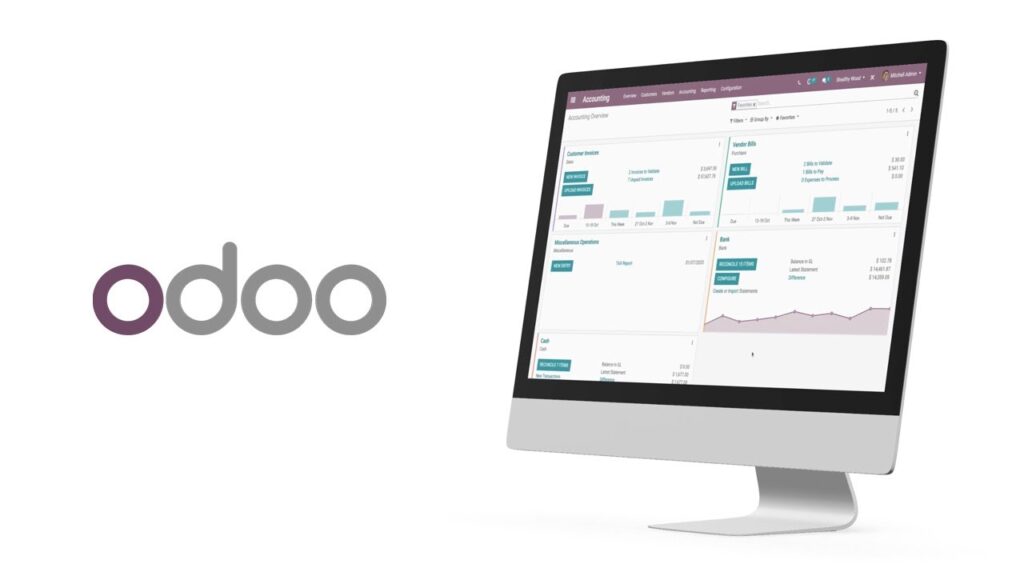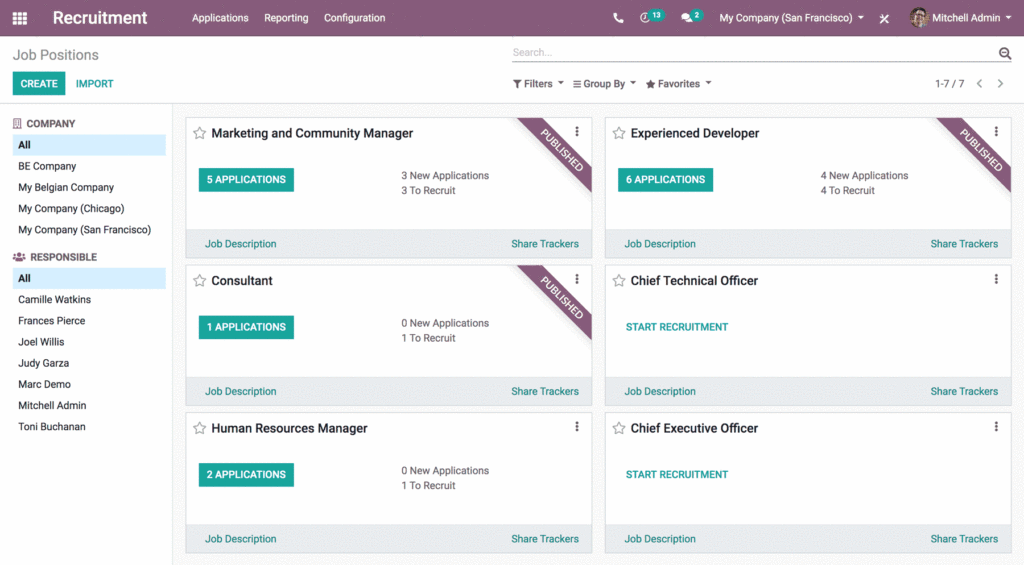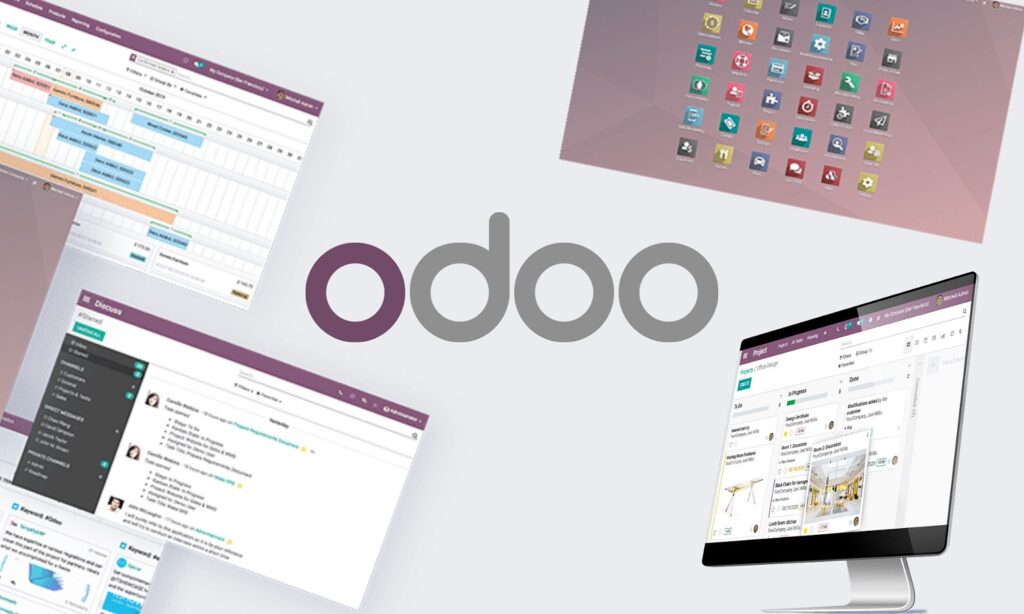Did you know that Odoo and Django can work together? This teamwork lets them share information and do important things together. Here’s what you need to know:
You can make Odoo and Django friends by joining them. When they’re friends, Django can copy special designs from Odoo, like blueprints for a house. It can also look at the records in Odoo, change them if needed, and make sure only the right people can see the changes.
Here Are Some Important Things About This Teamwork
1. Getting Ready
To start this teamwork, you need to do a few things. One is to add a special name, “Djangodoo,” to a list called INSTALLED_APPS. It’s like inviting a new friend to a club. Then, you need to give Django some instructions from Odoo, like telling it how to find your house on a map.
2. Sharing Information
This teamwork is like a sharing game. Odoo can give information to Django, and Django can use it for a special kind of project called REST API. It’s like Odoo giving Django puzzle pieces to make a beautiful picture.
3. OdooRPC – A Special Helper
OdooRPC is like a helper that can talk to Odoo’s special database. It helps Django do all sorts of things with the information from Odoo. It’s like having a friend who knows a lot about Odoo’s secrets.
4. Django’s Document App
Imagine having a magical book that writes itself! Django has a special book called a document app. This book can take information from Odoo and put it in a special place called REST API. It’s like making a library of important facts.
5. Odoo on the Go
Odoo also has a special app for your phone. This app lets you use Odoo even when you’re not at your computer. You can do things for your business, like counting money and organizing things, using just your phone!
Remember, this teamwork might be a little different depending on what version of Odoo you’re using or how you’re hosting it. It’s like a recipe that might have different ingredients depending on where you live. If you’re not sure what to do, you can look at the guide that comes with the teamwork or ask someone who knows a lot about it.
Read also: Why Odoo Is Better Than Sap
What Is The Purpose Of Integrating Odoo With Django?
Integrating Odoo with Django can offer various advantages, each serving a specific purpose. Let’s delve into these benefits and how they can enhance your business processes:
1. Copying Models
Djangodoo, the integration tool, allows the seamless transfer of models from Odoo to Django. This means you can bring in records from your Odoo system, make necessary modifications, and set up an authentication mechanism using Odoo’s own authentication system.
2. Retrieving Data
The integration of Odoo and Django enables the retrieval of data from your Odoo platform, which can then be utilized in a Django REST API project. This is particularly useful for building dynamic and data-rich web applications. To achieve this, you can use Odoo’s External API through XML-RPC, or alternatively, set up controllers within Odoo models.
3. Streamlining Business Processes
By merging Odoo with Django, you can streamline your business processes effectively. This integration allows for the seamless sharing of data between the two platforms, leading to improved efficiency and more cohesive operations.
4. Creating a REST API
The integration of Odoo and Django can also be harnessed to create a robust REST API, powered by Django-rest-framework. This is a valuable feature for enabling data communication between different systems. To facilitate this, you can employ Celery as a scheduler, ensuring that document app tasks run asynchronously and efficiently.
It’s important to note that the specific benefits mentioned above can vary based on factors such as the version of Odoo you are using, the type of hosting, and the chosen integration approach.
To get detailed insights and step-by-step guidance, consider consulting the user guide provided by the integration provider or reaching out to their support team. With the right integration strategy, you can leverage the strengths of both Odoo and Django to elevate your business operations to new heights.
Read also: Does Odoo Integrate With Zoho? What To Know
What Are The Benefits Of Using Djangodoo For Odoo Integration?
When it comes to joining forces between Odoo and Django, a powerful tool named Djangodoo steps in.
Although the search results might not spell out its advantages directly, we can piece together the benefits it offers.
By understanding the provided information, we can uncover how Djangodoo plays a role in bridging these two platforms, Odoo and Django.
1. Data Movement and Manipulation
Djangodoo steps in as a helpful hand, allowing the transfer of models from Odoo to Django. Not just that, it lets you fetch records from Odoo, make changes to them, and even sets up a special way to confirm your identity through Odoo authentication. Imagine a bridge that helps data smoothly cross from one side to the other, ensuring that both platforms work seamlessly together.
2. Boosting Business Efficiency
Imagine this as a shortcut in a maze – Djangodoo’s integration can shave off valuable time. It lets you easily exchange data between Odoo and Django, streamlining how a business operates. This means that the information needed in both systems can be shared without the need for complicated workarounds. So, when it comes to managing operations, Djangodoo provides a smoother path.
3. Fueling Django REST API
Think about Djangodoo as a treasure chest of possibilities. It doesn’t just stop at transferring data. It can lend a hand in a project involving Django REST API, a way to connect different parts of a software application. Here, Djangodoo’s magic can be harnessed to retrieve important data from Odoo, which can then be utilized in creating an even more impressive application.
4. Factors that Shape the Benefits
It’s worth noting that the perks might change a bit based on different factors. The version of Odoo being used, the way it’s hosted, and the exact integration with Djangodoo can influence the advantages you experience. So, while Djangodoo is like a toolbox, the benefits you pull out might depend on how you assemble the pieces.
5. Guidance and Further Exploration
Feeling intrigued? Want to get started? It’s wise to turn to the experts. Whether it’s a user guide provided by Djangodoo’s creators or seeking advice from their support team, detailed instructions can be your guiding stars. Remember, every journey is smoother when you have a roadmap.
Djangodoo’s power in connecting Odoo and Django might not be spelled out directly in the search results, but by understanding its features, benefits, and the various factors at play, we can grasp its significance.
This bridge between two platforms has the potential to enhance business operations, fuel ambitious software projects, and streamline data flow. So, if you’re ready to take your integration game to the next level, Djangodoo is here to guide the way.
Read also: How To Do Bank Reconciliation In Odoo
Are There Any Limitations To Integrating Odoo With Django?
When it comes to combining Odoo and Django, the search results don’t directly mention any restrictions.
However, it’s crucial to remember that these limitations might differ based on factors such as the version of Odoo you’re using, the type of hosting, and the specific integration method in play.
To gain a clearer understanding, it’s advisable to consult the user guide offered by the integration provider or get in touch with their support team for in-depth instructions and assistance.
Factors Influencing Integration
The compatibility of Odoo with Django may be influenced by various factors. These include the version of Odoo software you’re running, the way your website is hosted, and the exact method through which the integration is being carried out.
For instance, newer versions of Odoo might have enhanced compatibility, whereas certain hosting types could impact the smoothness of the integration process. By considering these aspects, you can make well-informed decisions regarding your integration.
Guidance and Assistance
To delve further into the process of integrating Odoo with Django, you have access to valuable resources. Among these are articles, videos, and forum posts that can provide you with detailed insights.
These resources are available in the search results and can give you step-by-step guidance, tips, and tricks to make your integration journey successful. Remember, seeking out such supplementary information can significantly contribute to the seamless fusion of Odoo and Django.
Conclusion
As you explore the possibilities of integrating Odoo with Django, remember that while limitations may not be explicitly stated in the search results, they could exist based on the version of Odoo you’re using, your hosting approach, and the integration specifics.
To gain a comprehensive understanding, tapping into the user guide offered by the integration provider or seeking assistance from their support is recommended.






